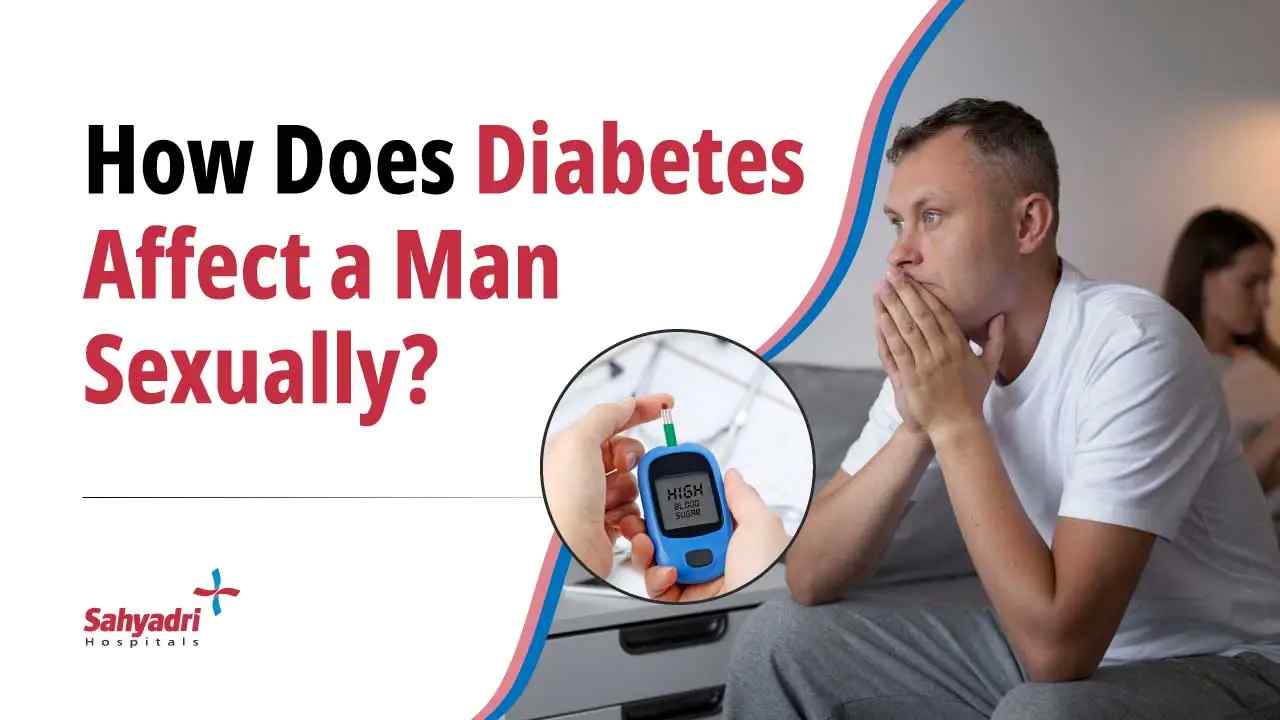Home > Blogs > Endocrinology >How Does Diabetes Affect a Man Sexually
How Does Diabetes Affect a Man Sexually?
India, home to over 77 million people living with diabetes, holds the unfortunate title of being the diabetes capital of the world. This chronic condition presents an array of complications, from cardiovascular disease to kidney damage.
However, one aspect that often gets overlooked in the discourse around diabetes is its impact on sexual health. We aim to delve into this sensitive yet critical topic, exploring the link between diabetes and sexual health, the associated complications, and the ways to manage these issues.

The Unseen Link Between Diabetes and Erectile Dysfunction (ED)
According to a study published in the Indian Journal of Endocrinology and Metabolism, men with diabetes are three times more likely to develop ED than those without diabetes.
Understanding the Diabetes-Testosterone Connection
It’s essential to consult with an endocrinologist or gynaecologist if you experience a noticeable decrease in sexual desire, as it could be indicative of an underlying hormonal imbalance.
Also Read: Also Read: Diabetes Guide : Types, Symptoms, Treatments & more
Neuropathy: An Often Overlooked Cause of Sexual Dysfunction
It can result in diminished sensation in the penis, contributing to difficulties in achieving an erection and other sexual issues. Neuropathy can also lead to a condition called retrograde ejaculation, where semen enters the bladder instead of exiting the penis during orgasm.
The Influence of Diabetes on Women’s Sexual Health
These can include vaginal dryness, decreased sexual desire, and pain during sexual intercourse. Women with diabetes are also more prone to recurrent yeast infections, which can cause discomfort and disrupt sexual activity.
Managing Diabetes and Improving Sexual Health
Stress management techniques, such as meditation and deep breathing exercises, can also be beneficial as stress can exacerbate diabetes symptoms and negatively impact sexual performance. Regular check-ups with an endocrinologist can ensure that any sexual health concerns are addressed promptly and effectively.
Medications and Treatments for Diabetes-Induced Sexual Problems
However, these medications may have side effects and might not be suitable for everyone. In cases where low testosterone levels are causing sexual health issues, hormone replacement therapy can be considered.
Treatments for women include vaginal lubricants and estrogen therapy for post-menopausal women experiencing vaginal dryness. consult with an best endocrinologist in pune or gynaecologist in pune before starting any new treatment.
Embracing Lifestyle Changes for Enhanced Sexual Well-being
Limiting alcohol consumption and quitting smoking are also beneficial as they can improve blood circulation, a crucial factor for sexual health.
Read More: Can Diabetes be Cured?
The Importance of Open Communication and Emotional Support
In Conclusion, While diabetes can pose challenges to one’s sexual health, these complications can be managed effectively with the right interventions and lifestyle changes.
It’s important to remember that open communication with your doctor about your concerns is key to finding solutions. By embracing proactive healthcare, individuals with diabetes can take charge of their sexual health and enjoy a fulfilling sexual life.
Patient Feedback
Great doctors, Good facilities, caring and helping staff. I recommend this hospital for day care services.
![]()
![]()
Sangram Shinde
All doctors r very good. There treatments is best. Other staff also good. The service of nurses is great...Hospital is always clean.
![]()
![]()
Vaishali Aitawade
All services provide by hospital are nice and on time. Doctors are polite and co-operative with patient.
![]()
![]()
Ankita Jagtap
All services provided by hospital is good. Hygiene maintained well.Even at night good care provided.
![]()
![]()


